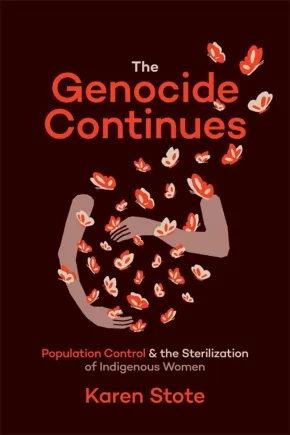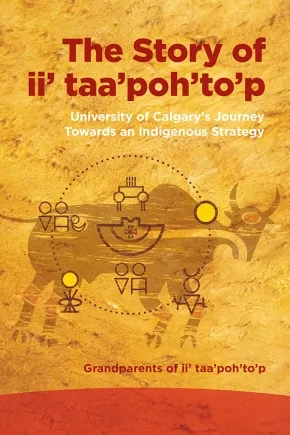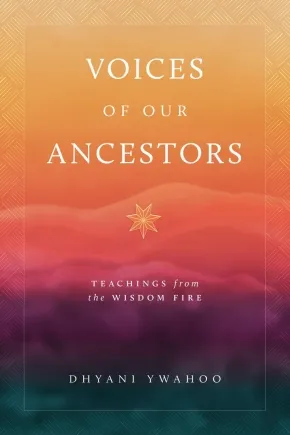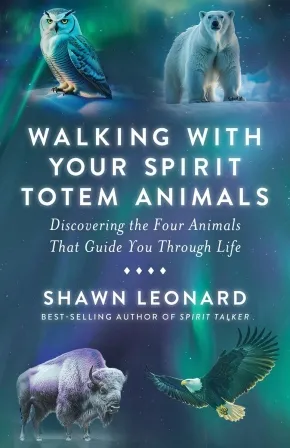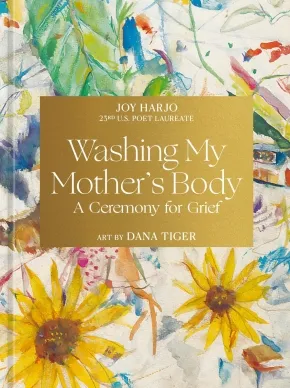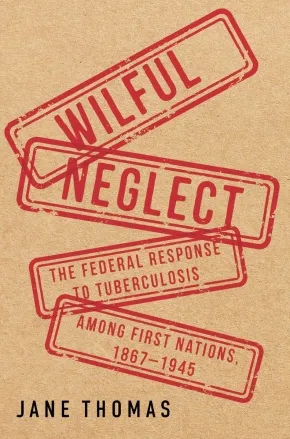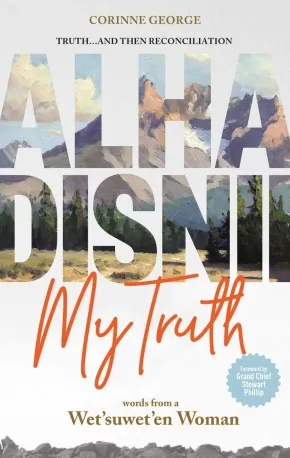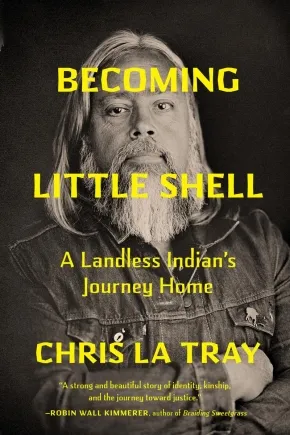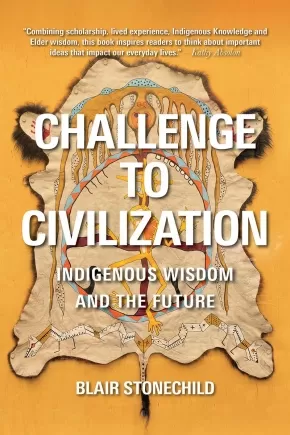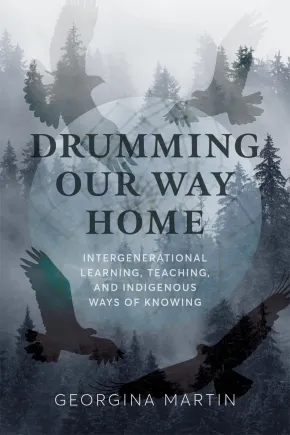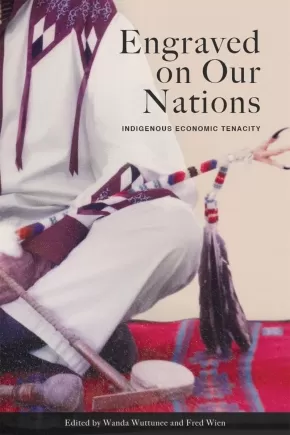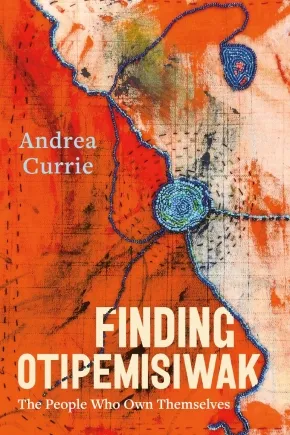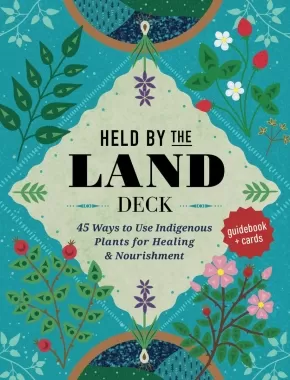Healing and Wellness
Synopsis:
Indigenous Peoples in Canada have experienced coerced sterilization under eugenics legislation since the 1930s, and the violence has never stopped, even though eugenics fell into disrepute. In The Genocide Continues, Karen Stote traces the historical, political, economic and policy context informing the coerced sterilization of Indigenous women from 1970 onward. She shows how a powerful idea paved the way for the expanded violations of Indigenous People’s bodies and futures. That idea was population control — a concern with who occupied land and how resources were distributed — and it was a central thread guiding public health interventions from eugenics to family planning.
The Genocide Continues offers new insights to show how federal, provincial and corporate activities intersected to criminalize and regulate Indigenous reproduction. Saskatchewan, which first established family planning policies in the 1970s and is now the province with the highest number of Indigenous women coming forward with experiences of coerced sterilization, is Stote’s case study to demonstrate why family planning activities consistently targeted Indigenous women.
Stote weaves compelling archival evidence with principled storytelling to connect violence against Indigenous bodies to violence against Indigenous lands. Unless and until colonialism, extractivism and dispossession are addressed, a genocide against Indigenous peoples will continue.
Reviews
"Karen Stote has skillfully woven archival documents with evidence in policy, philanthropy, and medicine to show the repulsive side of Canada’s health care system as an assimilation tool. This book recounts the reasons why forced and coercive sterilization of Indigenous Peoples happened and is still happening." - Karen Lawford, Queen's University
Additional Information
288 pages | 6" x 9" | Paperback
Synopsis:
A dynamic framework for the development of an Indigenous strategy that shares the engaging story of ii’taa’poh’to’p at the University of Calgary.
The University of Calgary’s Indigenous strategy, ii’taa’poh’to’p, lays the path for a journey of transformation and renewal for truth and reconciliation through ways of knowing, doing, connecting, and being.
The Story of ii’ taa’poh’to’p is the story of the creation of the University of Calgary’s Indigenous Strategy. The result of an enlightening process of relationship building and deep learning and listening, it required the intentional and careful creation of parallel paths for institutional and Indigenous frameworks to create the strategy. Authentic conversations occurred in the ethical space between the parallel paths, allowing for increased understanding of differences and similarities between cultures.
This book captures powerful and emotional stories that emphasize the importance of reconciliation and decolonizing organizations. It demonstrates that trusting relationships can be developed between Indigenous and non-Indigenous relatives and lays out a dynamic framework and approach for the development of an Indigenous strategy.
The Grandparents of ii’ taa’poh’to’p welcome readers to learn from their experience. They share insightful lessons about the importance of being relational; honouring ways of knowing and doing from other cultures; developing generational strategies that persist over time; understanding the impacts of fear; and making assumptions about people’s prior knowledge. They discuss how relationship building through deep listening across cultures is essential to the development of an Indigenous strategy. The Story of ii’ taa’poh’to’p is essential reading for all those interested in the development of an Indigenous strategy in the pursuit of truth and reconciliation.
Educator Information
About the Authors: The Grandparents of ii ’taa’poh’to’p are a collective of leaders from diverse cultural backgrounds and experiences who guided the development of the Indigenous strategy at the University of Calgary.
Additional Information
176 pages | 6.00" x 9.00" | Paperback
Synopsis:
Follow the beauty way to generate happiness and good relationships, fulfill your life purpose, manifest peace and abundance, and renew the planet.
Dhyani Ywahoo’s powerful, prophetic, and compassionate voice returns in this new expanded edition of the book that’s sold over 90K copies.
This beloved book has resonated with thousands of spiritual explorers and other readers wishing to ground their activities in harmony and well-being. In this expanded edition, Dhyani Ywahoo continues to be a guiding source of wisdom for all who walk the Beauty Way. As the twenty-seventh generation to carry the Ywahoo lineage of the Eastern Tsalagi/Cherokee Nation, she shares the precious oral teachings of her people that remain timely, powerful, and accessible.
Weaving together Buddhist and Native American traditions, Voices of Our Ancestors offers practical ways of transforming obstacles into happiness and good relationships, fulfilling our life purpose, manifesting peace and abundance, and renewing the planet. The Tsalagi worldview teaches us to infuse each moment with the three fundamental principles of intention, compassion, and doing good. We have the opportunity to let go of fear and aggression and begin to live a life of enlightened consciousness, with tools like:
- Meditations;
- Healing rituals;
- Instructions for working with crystals; and
- Teachings on how to practice generosity and harmony.
Our journey is enriched by Dhyani Ywahoo’s new reflections on the expansion of Native American communities in the United States and how they have cooperated to bring Indigenous voices into larger conversations about conflict resolution, the climate crisis, and the need for inclusion of underrepresented groups and individuals. With a voice that is powerful, prophetic, and compassionate, Dhyani Ywahoo calls on us to become peacekeepers in our hearts and in the world.
Reviews
“Venerable Dhyani Ywahoo embodies wisdom of the Native and Tibetan traditions. Hers is a lifetime spent generously sharing these sacred teachings with students all over the world. I celebrate this new edition of her book, which will hold these precious methods to walk in this world with wisdom and compassion now and for future generations.”—Lama Konchok Sonam, spiritual director of Drikung Meditation Center
“These wisdom teachings are profoundly life-changing for spiritual growth no matter your tradition. Venerable Dhyani Ywahoo is an exceptional spiritual leader and teacher, having forged her own way through traditional Cherokee and Vajrayana teachings. She compassionately embraces her students with her wisdom, offering unique and significant insights. Voices of Our Ancestors is a timeless work and as such it lends support and inspiration continually.”—Shan Watters, artist and author of Mothering the Divine
Additional Information
352 pages | 6.00" x 8.99" | Paperback
Synopsis:
From Shawn Leonard, Indigenous medium and host of Spirit Talker, comes a guide for assembling your unique team of spirit totem animal guides to be your personal guides through your life.
We are deeply connected to the animal nation, and through the four stages of life—Childhood, Youth, Adulthood, and Elderhood—there are four sacred animal totems that guide us energetically using their sacred medicine.
In Walking With Your Spirit Totem Animals, Mi’kmaq medium and host of Spirit Talker Shawn Leonard invites readers on a profound journey into the mystical world of animal totems. His insightful guide reveals how specific animal totems, that are personal to each and every one of us, support us. Leonard intertwines personal anecdotes with spiritual teachings, illustrating how these animal guides have appeared in his own life—his totems are Buffalo/Bison, Eagle, Polar Bear, and Owl—and provided wisdom at each stage.
The book includes comprehensive discussions on the Medicine Wheel and practical tools such as prayers and meditations to help readers connect with their own animal totems. Leonard also incorporates reflections on the connection between pets and their spiritual roles, messages revealed through animal dreams, and encounters with the animal nation in the astral realm.
Additional Information
208 Pages | 5.63 x 8.50" | b&w interior | Paperback
Synopsis:
A beautifully illustrated edition of Poet Laureate Joy Harjo’s poem “Washing My Mother’s Body,” which offers a way through grief when the loss appears unbearable.
As I wash my mother’s face, I tell her
how beautiful she is, how brave, how her beauty and bravery
live on in her grandchildren. Her face is relaxed, peaceful.
Her earth memory body has not left yet,
but when I see her the next day, embalmed and in the casket
in the funeral home, it will be gone.
Where does it go?
Through lyrical prose and evocative watercolor illustrations by award-winning Muscogee artist Dana Tiger, Washing My Mother’s Body explores the complexity of a daughter’s grief as she reflects on the joys and sorrows of her mother’s life. She lays her mother to rest in the landscape of her memory, honoring the hands that raised her, the body that protected her, and the legs that carried her mother through adversity.
Moving, comforting, and deeply emotional, Washing My Mother’s Body is a tender look at mother-daughter relationships, the complexity of grieving the loss of a parent, and the enduring love of those left behind.
Additional Information
80 pages | 5.79" x 7.81" | Hardcover
Synopsis:
How colonial medical policies are linked to health inequities that persist in First Nations a century later.
Tuberculosis, once a leading cause of death in Europe and North America, was understood to be preventable and even curable by the early twentieth century. Yet despite growing knowledge about the disease and interventions that would slow its spread, tuberculosis deaths among First Nations in Canada remained staggeringly high. Government policies rooted in colonialism exacerbated a tuberculosis epidemic. Wilful Neglect explores the devastating consequences of the Department of Indian Affairs’ failed responses to tuberculosis among First Nations in Canada from 1867 to 1945. Even when medical treatment for tuberculosis became widely available, and despite the codification of the federal government’s obligations in treaties and other legislation, the basic health needs of First Nations remained unmet. The government instead prioritized an assimilationist agenda, including the placement of Indigenous children in residential schools, which became hotbeds for the spread of the infection. Drawing on the department’s own annual reports, memoranda, and budgets over more than seventy years, Jane Thomas traces key moments, decisions, and individuals involved in shaping federal health policy, laying bare the repercusions of racializing a disease. Health policies developed by colonial governments without the involvement of First Nations have always failed. Wilful Neglect demonstrates a direct link between the federal government’s historical health policies and the disparities that continue into the present.
Reviews
“Wilful Neglect is a compelling national case study of the federal government’s complicity in the deaths of thousands of First Nations individuals during the tuberculosis epidemics of the nineteenth and twentieth centuries.” - Hugh Shewell, Carleton University
Educator Information
Table of Contents
Figures and Table • ix
Foreword • xi
Shawn Batise
Acknowledgments • xv
Abbreviations • xxi
Introduction • 3
1 “The promises we have to make to you are not for today only but for tomorrow”: Setting Precedent Through Legislation, Treaties, and Government Practice, 1867–1883 • 25
2 “There is a ready compliance on their part with regulations”: Assimilation at All Costs Through Civilizing, Christianizing, and Sanitizing the Infected, 1884–1903 • 47
3 “We are giving the best attention we can to the medical needs of the Indians”: Dr Peter Bryce’s anti-TB Crusade, 1904–1913 • 70
4 “We have been trying to get off rather cheaply”: Treatment of “Indian Tuberculosis,” 1914–1928 • 109
5 “The activities of the medical branch cannot fairly be judged by the visible results”: Vaccine Trials, Pilot Projects, and a New Medical Services Branch, 1929–1937 • 139
6 “A comprehensive and progressive program is long overdue”: New Funding and Treatment Facilities, 1938–1945 • 172
Conclusion: If Preventable, Why Not Prevented? • 193
Afterword • 199
Appendix A: Individuals Responsible for the Department of Indian Affairs (1867–1945) • 202
Appendix B: Department of Indian Affairs Medical Expenses (1868–1904) • 206
Appendix C: Timeline of United Church Mission Hospitals Opened in Canada • 208
Appendix D: Canadian Tuberculosis Association Expenses (1902–1945) • 210
Appendix E: Department of Indian Affairs Medical Expenses (1905–1945) • 212
Notes • 217
Bibliography • 271
Index • 289
Additional Information
318 pages | 6" x 9" | Paperback
Synopsis:
My name is Corinne George. I am Wet’suwet’en with Gitksan lineage from the Gidimt’en (Bear) Clan. This is my truth, and through sharing my truth, I strive for ongoing healing and to continue the journey of reconciliation. As a Wet’suwet’en woman born and raised on what is now known as the “Highway of Tears,” it was not uncommon to receive inferior treatment. There were even times when I was overtly targeted. It has been very common for people to outwardly refuse to acknowledge my existence as a human being. I was always afraid to share my truth because I did not want to be stigmatized. I am the daughter of a residential school survivor and a WWII veteran. As a result of colonization, I have encountered incredible levels of trauma. I need to acknowledge and speak my truth. As I share my pain and experiences, I have gathered self-awareness and every time I speak about my trauma, I heal a little bit more. I do not deserve to be treated like I do not exist. Despite the historical impacts of colonization and trauma, my connections to my ancestral ways and my identity have been critical. This is how I survived and how I strive to thrive.
Educator Information
Recommended for ages 16+.
Additional Information
128 pages | 5.10" x 7.50" | Paperback
Synopsis:
When matriarchs begin to disappear, there is a choice to either step into the places they left behind, or to craft a new space.
Helen Knott’s bestselling debut memoir, In My Own Moccasins, wowed reviewers, award juries, and readers alike with its profoundly honest and moving account of addiction, intergenerational trauma, resilience, and survival. Now, with her highly anticipated second book, Knott exceeds the highest of expectations with a chronicle of grief, love, and legacy. Having lost both her mom and grandmother in just over six months, forced to navigate the fine lines between matriarchy, martyrdom, and codependency, Knott realizes she must let go, not just of them, but of who she thought she was.
Woven into the pages are themes of mourning, sobriety through loss, and generational dreaming. Becoming a Matriarch is charted with poetic insights, sass, humour, and heart, taking the reader over the rivers and mountains of Dane Zaa territory in Northeastern British Columbia, along the cobbled streets of Antigua, Guatemala, and straight to the heart of what matriarchy truly means. This is a journey through pain, on the way to becoming.
Through writing, reflecting, and dreaming I found my way to the real lessons.
I found permission to become whoever I needed to be.
I found permission to live a life and not just endure it.
I found permission to belong deeply to myself.
I found permission to lay to rest the sorrow of the women before me and to cultivate joy for us in its place.
Awards
- 2024 BC Book Awards - The George Ryga Award for Social Awareness in Literature winner
Reviews
“In enchantingly vivid language and with a compelling narrative arc, Helen Knott’s new masterpiece is a memoir of grief and joy, loss and rediscovery, flight and return and, above all, a paean to the beautiful, eternal, soothing and all-encompassing power of matriarchy.” —Gabor Maté MD, author of The Myth of Normal: Trauma, Illness and Healing in a Toxic Culture
“Knott lays out that which all Indigenous women know and feel on a cellular level—we are only here because of the women, the matriarchs, the warriors, the survivors, the courageous ones, the fierce ones, the loving ones who came before us. Beautifully, tenderly Knott maps out for the reader the intrinsic way Indigenous women lift up, celebrate and support one another. Even when no one else does. We always have each other. We see each other. We are each other’s medicine. And there is no greater gift. These are the stories Indigenous women must tell—the journeys, reclamation and place of matriarchs. Present in Knott’s words are paths to reconciliation for everyone.” —Nahanni Fontaine, Member of the Legislative Assembly of Manitoba
“Becoming a Matriarch is a vivid, lyrical exploration of womanhood, loss, grief, and eventually, self-love, braided together with radiance and wisdom. Knott brilliantly uses memory as a tool for self-exploration and growth. The land, dreams and body are in constant communication: ‘My body knows the mountains and rivers and berry bushes that it comes from.’ Throughout the book you can’t help but ask yourself, what does it mean to come from strong women and still allow yourself space to be loved? Becoming a Matriarch teaches us that joy can exist inside the cracks of the most tumultuous times in our lives and love can still bloom if we let it.” —Chelene Knight, author of Dear Current Occupant and Junie
“Becoming a Matriarch is a feast of remarkable, colourful, deep and profoundly raw storytelling. Helen Knott is one of the greatest Indigenous literary artists of our time.” —Brandi Morin, author of Our Voice of Fire: A Memoir of a Warrior Rising
Additional Information
224 pages | 5.18" x 8.00" | Paperback
Synopsis:
Growing up in Montana, Chris La Tray always identified as Indian. Despite the fact that his father fiercely denied any connection, he found Indigenous people alluring, often recalling his grandmother’s consistent mention of their Chippewa heritage.
When La Tray attended his grandfather’s funeral as a young man, he finally found himself surrounded by relatives who obviously were Indigenous. “Who were they?” he wondered, and “Why was I never allowed to know them?” Combining diligent research and compelling conversations with authors, activists, elders, and historians, La Tray embarks on a journey into his family’s past, discovering along the way a larger story of the complicated history of Indigenous communities—as well as the devastating effects of colonialism that continue to ripple through surviving generations. And as he comes to embrace his full identity, he eventually seeks enrollment with the Little Shell Tribe of Chippewa Indians, joining their 158-year-long struggle for federal recognition.
Both personal and historical, Becoming Little Shell is a testament to the power of storytelling, to family and legacy, and to finding home. Infused with candor, heart, wisdom, and an abiding love for a place and a people, Chris La Tray’s remarkable journey is both revelatory and redemptive.
Reviews
“La Tray’s pride and conviction will have readers eager not only to learn more, but to take action. A brilliant contribution to the canon of Native American literature.”—Kirkus Reviews, starred review
“[A] gripping debut memoir. [. . .] La Tray’s crystalline prose and palpable passion for spreading Indigenous history bolster his account. Readers will be fascinated.”—Publishers Weekly
"Heartbreaking, infuriating, and remarkable, Becoming Little Shell is a memoir that’s packed with historical details,transcending and amplifying a personal quest to understand a family’s past."—Foreword Reviews, starred review
“Smart, emotional, and bracingly honest, La Tray is a powerful storyteller who should have significant appeal.”—Booklist
“I’m in awe of Chris La Tray’s storytelling. Becoming Little Shell creates a multilayered narrative from threads of personal, family, community, tribal, and national histories. Together they make a story as strong and beautiful as a Metis sash—a story of identity, kinship, and the journey toward justice.”—Robin Wall Kimmerer, author of Braiding Sweetgrass
“Chris La Tray is a powerful voice—a force of nature, really—to guide us through the swirling confluence of Native and white worlds, both past and present. Becoming Little Shell is the American story of our era—tracing the arc of its author brought up in the white world before discovering his roots as an original inhabitant of this continent.”—Peter Stark, author of Gallop Toward the Sun
“Indigenous identity can be complicated, and Becoming Little Shell compels us into the thick of it—Native people dispossessed of not just land but recognition; blood quantum laws originally crafted to complete a genocide and still wreaking havoc in identity debates today; racism that drove many Native people to disassociate from their families; and descendants, like La Tray, who have found their way back, fighting for the reconnection of their communities and for the observance of their very existence. La Tray is a loving, discerning, curious, funny, and generous guide. This is a beautiful, big-hearted book.”—Sierra Crane Murdoch, author of Yellow Bird
“Becoming Little Shell is a moving, deeply felt, and incredibly detailed account of Chris La Tray’s search for his origins among the Métis, Pembina, and Little Shell Tribe of Chippewa Indians. Combining memoir, history, interviews, and travel, La Tray gives us nothing less than the history of a people in the form of an absorbing and emotionally searing memoir. This book will, without a doubt, become a classic in Native American literature. Must read.”—David Treuer, author of The Heartbeat of Wounded Knee
“What I appreciate so much about Chris La Tray’s writing on Indigenous identity and history is the wit, clarity, and integrity embodied in every word. Becoming Little Shell beautifully encompasses a journey that we can all learn from, a journey toward asking better questions about land, belonging, and connection, and through this book La Tray epitomizes historian, poet, and teacher. Full of Indigenous history, personal stories, and the complex dance between the two, La Tray reminds us that the journey of finding ourselves and making sense of the way colonialism plays out around us is an essential part of being human. Please read this book. You’ll be so glad you did.”—Kaitlin B. Curtice, author of Living Resistance
Additional Information
320 pages | 6.00" x 9.00" | Hardcover
Synopsis:
Rediscovering, valuing, and embracing Indigenous spirituality and wisdom is critical for humanity to survive in the future.
Civilization is a western, Eurocentric construct borne from a distrust of nature, a desire to endlessly exploit it and profit from it. Despite being a relatively recent development, civilization’s inherent logic has resulted in over-population, inequality, poverty, misery, war, and climate change and now threatens humanity’s very survival. How can humanity expect to survive if it continues to look for solutions from the very structures and ideologies that have brought it to the brink of extinction?
In this final book of his trilogy, Dr. Blair Stonechild deftly illustrates how Indigenous spirituality, wisdom, and land-based knowledge is critical to human survival in the face of environmental destruction and human-induced climate change. Reinterpreting world history from an Indigenous perspective, Stonechild’s solution to this unfolding catastrophe is “ecolization,” a state in which humans recognize they are not the central purpose of creation and a way of existing harmoniously with the natural and spiritual worlds.
Beautifully written, urgent, and critical, Challenge to Civilization reminds us that it is not Earth that is in danger of extinction, but ourselves, and Indigenous spiritual wisdom can be the guiding light through what will otherwise be humanity’s final, ever-darkening days.
Additional Information
184 pages | 6.00" x 9.00" | Paperback
Synopsis:
What does it mean to be Secwepemc? And how can an autobiographical journey to recover Secwepemc identity inform teaching and learning? Drumming Our Way Home demonstrates how telling, retelling, and re-storying lived experiences not only passes on traditional ways but also opens up a world of culture-based learning.
Georgina Martin was taken from her mother not long after her birth in a segregated tuberculosis hospital. Her experience is representative of the intergenerational trauma inflicted by the Canadian state on Indigenous peoples. Here she tells her story and invites Elder Jean William and youth Colten Wycotte to reflect critically on their own family and community experiences. Together they journey, exchanging thoughts about personal and collective identity, culture and language, and the challenging process of gaining traditional knowledge.
This process of reaching into memories not only uncovers the pain of separation from culture but also provides a powerful example of reconnection through healing, affirmation, and intergenerational learning. Throughout this journey, Georgina Martin is guided by her hand drum, reflecting on its use as a way to uphold community protocols and honour teachings.
Drumming Our Way Home is evidence of the value of storytelling as pedagogy, demonstrating that it can offer vital lessons in teaching, learning, and meaning making.
This significant contribution to Indigenous pedagogical methodology is an excellent resource for educators, education students, and eduational policy makers. It should also be read by scholars and students in Indigenous studies and anthropology. Those in the helping fields of social work and health, education, and sociology will find the narrative of a personal healing journey inspiring and informative.
Reviews
Table of Contents
Foreword / Jo-ann Archibald
Preface
1 Drumming as Metaphor
2 The Drum Reverberates against the Intergenerational Aspects of Colonialism
3 Honouring the Drummer: Embodied Knowledge from within my community
4 Elder Jean’s Stories: Passing the Drum Forward to the Next Generation
5 Colten’s Stories: Memories and Values
6 Intergenerational Knowledge Transmission
Notes; References; Index
Additional Information
176 pages | 6.00" x 9.00" | 7 b&w photos, 1 map | Paperback
Synopsis:
A testimony to Indigenous resilience in business.
Despite investments in nation building, self-autonomy, and cultural resurgence, Indigenous economic development has remained an underexplored and underestimated area of research. Engraved on Our Nations overturns the discouraging deficit perspective too common in policy and academia and amplifies the largely undocumented history of successful Indigenous economic activity in Canada.
Following David Newhouse’s overview of Indigenous economic history, the authors of this collection illustrate how First Nation and Métis individuals and communities have met and overcome an array of challenges. Case studies focus on First Nations from Membertou (Nova Scotia) to Tahltan (British Columbia) and Indigenous-led enterprises like McDonald Brothers Electric (Northwest Territories) and Neechi Commons (Manitoba). Simultaneously celebrating Indigenous entrepreneurs and exploring concerns around sustainable development, the book also asks: can capitalism be Indigenized?
This first-of-its-kind collection shares stories not only of entrepreneurial excellence and persistence but savvy leadership, innovation, and reciprocity. In doing so, Engraved on Our Nations provides hope to Indigenous business leaders, youth, and elected officials working on the front lines to improve economic conditions and achieve "a good life" for their communities.
Reviews
“There are few books that can compare to this. The strengths-based approach used by each author is refreshing and will be of service to First Nations communities and to Indigenous and non-Indigenous scholars in community economic development.” — Shelley T. Price
“Engraved on Our Nations clearly articulates the strength, courage, and foresight of Indigenous people. The uplifting stories within this volume will open the eyes of readers and elicit hope, inspiration, and pride.” — Bob Kayseas
Educator Information
Table of Contents
Preface: Exploring Indigenous Economic Tenacity in Canada – Wanda Wuttunee and Fred Wien
Introduction: Indigenous Economic History as the History of Tenacity – David Newhouse
Part One: Strategic Leadership
1. How Does First Nation Social and Economic Development Contribute to the Surrounding Region? A Case Study of Membertou – Mary Beth Doucette and Fred Wien
2. Incremental Planning: The Tsawwassen First Nation Experience – Daniel M. Millette
3. Fulfilling Treaty Promises: Treaty Land Entitlement and Urban Reserves in Saskatchewan – Charlotte Bezamat-Mantes
Part Two: Culturally on Point
4. Trading on Tradition: Innovative Indigenous Enterprise – Isobel M. Findlay
5. Capitalism: Can It Be Indigenized? – Clifford Gordon Atleo
6. Challenges and Opportunities for BC First Nations’ Economic Self-Determination – J. Sayers
Part Three: Family Connections
7. Honouring Entrepreneurial Resilience: Atlantic Region Lifetime Achievers – Chris Googoo, Catherine Martin, and Fred Wien
8. A Métis Light in the Northern Darkness—Case Study – Wanda Wuttunee
9. Neechi Commons Case Study: A Lost Love Letter to Winnipeg – Wanda Wuttunee
Part Four: Partnering for Success
10. Tahltan Economic Tenacity—From Affluence to Poverty to Affluence – Jerry Asp
11. Stronger Together: First Nation Community/Municipality Collaborations – Wanda Wuttunee
Conclusion: What Did We Learn About Indigenous Tenacity? Fred Wien and Wanda Wuttunee
Acknowledgements
Contributors
Index
Additional Information
304 pages | 6.00" x 9.00" | Index, Bibliography | Paperback
Synopsis:
A Sixties Scoop survivor's journey back to her Nation and the truth of who she is
Otipemisiwak is a Plains Cree word describing the Metis, meaning "the people who own themselves."
Andrea Currie was born into a Metis family with a strong lineage of warriors, land protectors, writers, artists, and musicians - all of which was lost to her when she was adopted as an infant into a white family with no connection to her people. It was 1960, and the Sixties Scoop was in full swing. Together with her younger adopted brother, also Metis, she struggled through her childhood, never feeling like she belonged in that world. When their adoptions fell apart during their teen years, the two siblings found themselves on different paths, yet they stayed connected. Currie takes us through her journey, from the harrowing time of bone-deep disconnection, to the years of searching and self-discovery, into the joys and sorrows of reuniting with her birth family.
Finding Otipemisiwak weaves lyrical prose, poetry, and essays into an incisive commentary on the vulnerability of Indigenous children in a white supremacist child welfare system, the devastation of cultural loss, and the rocky road some people must walk to get to the truth of who they are. Her triumph over the state's attempts to erase her as an Indigenous person is tempered by the often painful complexities of re-entering her cultural community while bearing the mark of the white world in which she was raised. In Finding Otipemisiwak, one woman's stories about surviving, then thriving as a fully present member of her Nation and the human family are a portal. Readers who walk through will better understand the impact of the Sixties Scoop in the country now called Canada.
Reviews
"Finding Otipemisiwak is a stunning, illuminating, and gutting journey through the life of a Sixties Scoop survivor. Page turning, genre bending, personal and political, staggeringly honest, heartbreaking, and glorious, it is a story of resistance, possibility, healing, and hope, of reclamation and reconciliation. With words to stop you in your tracks, Currie braids together heart, soul, and smarts in memoir, poems, threads of her family histories, the Red and Assiniboine Rivers, unflinching questions, and courage, making herself magnificently vulnerable. This book cuts to the heart of the Sixties Scoop crisis, addresses the intergenerational trauma of not only its survivors but its effects on all of us. It gives us all a chance to relearn the history of Canada and to dream of a healing in it. It is part of the truth-telling change this country so desperately needs." — Camille Fouillard, author of Precious Little
"Finding Otipemisiwak is a beautifully written story of tragedy and triumph, as well as one of escape from a false family into the embrace of a loving one. Threading through Currie's remarkable tale is a heart-wrenching bond between her and her adoptive brother, Rob. This book contains a story that desperately needs to be told." —Frank Macdonald, author of A Forest for Calum
"This book takes on the quality of a great radio documentary, splicing prose, poetry, and actuality as Andrea Currie cross-examines colonization and the story that settler society placed over her like a net. When she comes to know who she and her people are, there is joy and there is sadness, but also truth and belonging, a firm scaffolding as Andrea comes to own herself. Finding Otipemisiwak is a powerful act of resistance and gripping to read. It is a balm. —Shelagh Rogers, founding host and co-creator of The Next Chapter CBC Radio
"Finding Otipemisiwak is a poignant story of self-discovery, weaving Red River Metis heritage with personal narrative and ancestral lore and honouring resilience amidst the Sixties Scoop." —Albert G.D. Beck, Director, Manitoba Metis Federation
"Weaving myriad forms - poetry, family history, personal essay, cultural criticism - Andrea Currie tells her story with mercy and force, revealing the warp and weft of the racist system that codified the robbery of Indigenous children through the Sixties Scoop and the devastating consequences for those children, their families, and their communities. In this rigorous and beautiful debut, Currie's unfaltering pursuit of complicated truths lifts into the light the possibility of healing, as she seeks and finds her own lost family, writing her story into theirs. Finding Otipemisiwak is a necessary, searing, and luminous gift of a book." —Rebecca Silver Slayter, author of The Second History
Additional Information
272 pages | 6.00" x 9.00" | Paperback
Synopsis:
From Indigenous scholar Yuria Celidwen comes a first-of-its-kind book about our aspiration for sustainable, collective flourishing through Indigenous wisdom, traditions, and practices that bridge Indigenous and Western knowledges and ways.
How do we cultivate happiness? When facing the monumental challenges of our world, we often end up disconnecting in order to focus on our mental health. Dr. Yuria Celidwen explains this focus on our own state of mind alone is precisely why so many of us struggle to flourish. “What’s been overlooked is the Indigenous perspective of relationality,” she says. “It is the understanding that happiness is only possible in community, when we cultivate our relationships toward all kin, from human to more-than-human, and to our living Earth.”
Dr. Celidwen’s research shows the tremendous benefit of integrating Indigenous approaches into our approach to well-being, while recognizing the gains made by Western positive psychology, mindfulness, and neuroscience. In Flourishing Kin, she identifies seven key principles found in Indigenous cultures worldwide that embrace virtue, ethical living, and spirituality. Each principle—Kin Relationality, Body Seed, Senshine, Heartfelt Wisdom, Ecological Belonging, Collective Well-Being, and Reemergence—is a seed to flourishing kin, and reveals how we can overcome isolation and climate anxiety, nourish healthy relationships with our communities and environment, and build strong foundations of well-being that elevate our life choices for the benefit of our whole planet.
Sustainable collective flourishing goes beyond optimism or resilience. Offering opportunities for exploration, reflection, and personalized insight, here you’ll find shared storytelling, cultural tradition, and other forms of enhanced contemplative practice like ritual, music, movement, and art to support your journey. Through poetic expression and authentic truth telling, Dr. Celidwen invites us to experience a path to fulfillment that allows us to meet the world in all its complexity with reverence and joyous commitment to participate in the flourishing of all living beings.
Additional Information
256 pages | 6.05" x 8.95" | Paperback
Synopsis:
Have Indigenous plant knowledge at your fingertips with this gorgeously illustrated card deck from Leigh Joseph, an ethnobotanist and a member of the Squamish Nation.
Plants can be a great source of healing as well as nourishment, and the practice of growing and harvesting from trees, flowering herbs, and other plants is a powerful way to become more connected to the land. The Indigenous Peoples of North America have long traditions of using native plants as medicine as well as for food. Held by the Land Deck includes 45 cards of indigenous plants and their properties and a 48-page booklet to guide you along the way. Here are some of the things you will find:
- Tips to build your own home apothecary
- Notes on how to mindfully harvest and connect to the land you’re on
- Recipes for infused oils and salves
- A botanical glossary to help out with some of the more technical language
- Checklists for safe and sustainable harvesting
This beautifully illustrated card deck includes plants that are culturally significant to the Pacific Northwest, including Western Red Cedar, Devil’s Club, Broad-Leaved Plantain, Camas, Wapato, and Red Laver. Special features in the booklet include recipes for food and beauty products along with stories and traditions around the plants.
This elegant, full-color card deck and booklet is your go-to guide for Indigenous plants and will give you new insights into the power of everyday nature.
Additional Information
48 pages | 4.50" x 5.90" | 45 Cards and 48-Page Booklet

